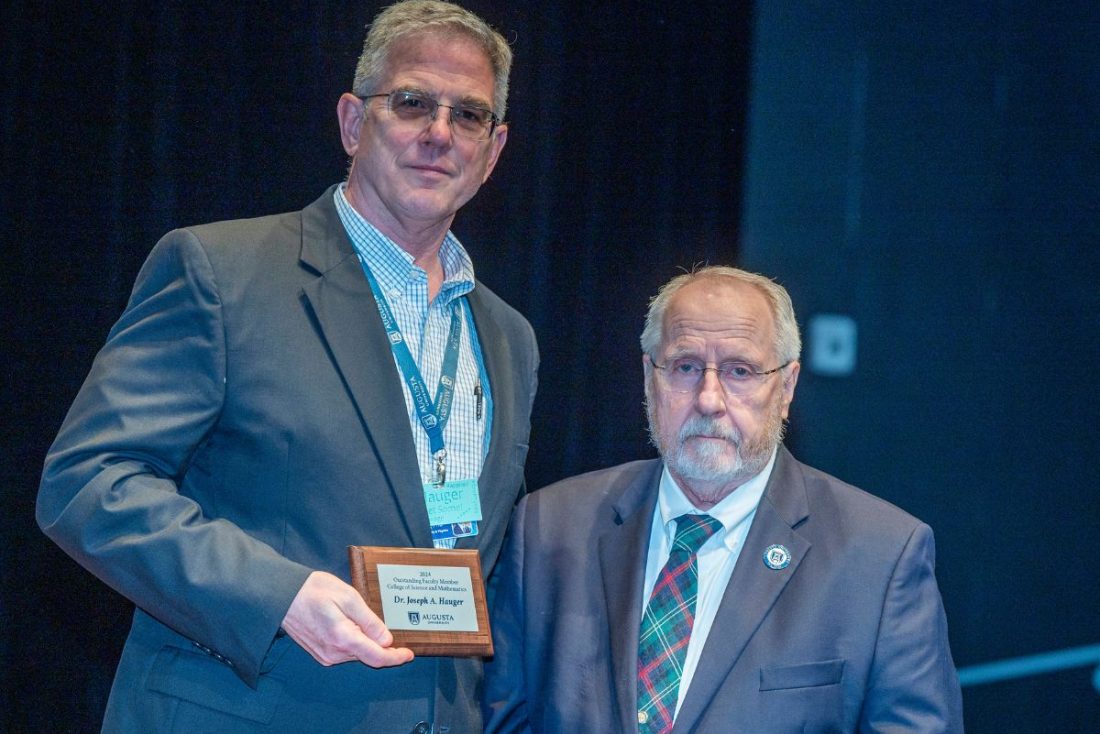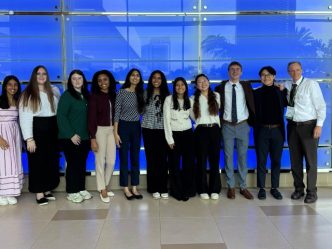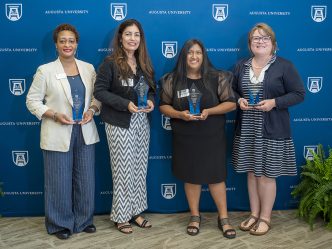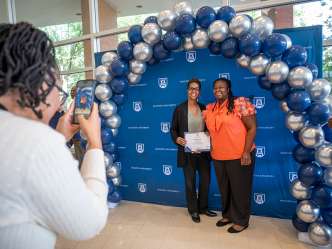Recipient of the Outstanding Faculty for the College of Science and Mathematics Award
Following a stint in the U.S. Navy teaching reactor and radiation physics, Andy Hauger, PhD, was searching for the perfect job – one he found in Augusta, Georgia. The added bonus for him? Teaching electronics, which had become his main area of interest and research.
The Fuller E. Callaway Professor of Physics in the Department of Physics and Biophysics in the College of Science and Mathematics at Augusta University, Hauger enjoys working in the lab with undergraduate students from a variety of majors and colleges around campus on course work and applied research and development projects, as well as the constant learning and growing that happens with these teaching and research efforts.
“Even after 28 or more years of teaching and research, I am still working to get things better than before.”
Andy Hauger, PhD
“It is fantastic to see students learn and develop and move on to successful post-graduate careers,” he said. “The projects we work on, usually with undergraduates, always have some components we are experienced with, but they also always have techniques or ‘new tricks’ we have to stumble around and learn. It keeps one humble and thinking hard. “
While Hauger’s main post at AU is in physics, the work he does with his team is primarily in the area of low-power/low-cost electronics and steps across into the engineering world more than some people might expect.
“I recruit students from a range of mostly STEM majors to help with this work,” Hauger said. “These projects are funded through contracts with the City of Augusta Utilities department and have been active for almost 10 years now. This collaboration is a significant opportunity for me and many students.”
The Wisconsin native said receiving the Outstanding Faculty Award for the College of Science and Mathematics is quite humbling, as the college has many talented and dedicated faculty, but his work at Augusta University is far from over.
“Even after 28 or more years of teaching and research, I am still working to get things better than before, so I am always thinking about new and better ways to work with our students in both the classroom and the lab,” he said. “In addition, I currently lead a small group of students working on research and development of innovative water quality and ‘smart city’ applications, and we are on the verge of completing a few devices which will have immediate use for the municipality.”
 Augusta University
Augusta University




